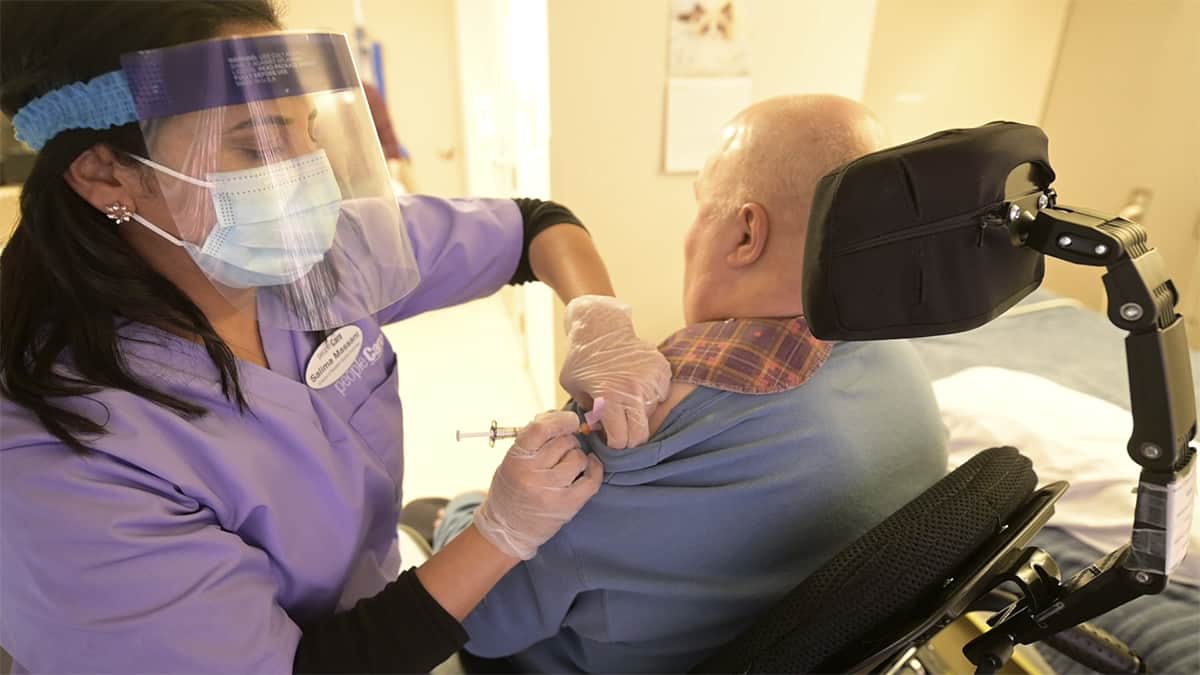Facing an increase in COVID-19 cases, the Region of Waterloo is stepping up enforcement efforts when residents fail to comply with lockdown rules even in advance of new stay-at-home orders that went into effect Thursday.
“We continue to see high numbers of new cases every day. With multiple outbreaks in workplace and congregate care settings being declared daily, continued hospitalizations, ICU admissions, and deaths, our incidence rate is at its highest to date,” said medical officer of health Dr. Hsiu-Li Wang in a briefing January 8.
The region is seeing 160 case per 100,000 population each week, up from 92 cases in late-December.
“Taking into account interim data, our latest per cent positivity has increased to 5.5 per cent. Our latest reproductive rate has increased to 1.3. These indicators show that we are experiencing an acceleration in the spread of COVID-19 in our community following the holiday season,” she added.
The number of active cases continues to climb each day, with 1,064 at midweek. That brings the cumulative total to 7.657. There has also been an increase in the number of fatalities, which now stand at 179, five more than at the time of the briefing.
The numbers indicate high transmission levels, with 39 active outbreaks spread out among long-term care facilities, retirement homes and workplace settings.
“As community spread increases, we expect to see an associated increase in the number of employees who acquire COVID and the number of outbreaks declared in workplace settings. In the second wave, workplace settings have become among the most frequent settings experiencing outbreaks across Ontario. And it’s the same for Waterloo Region. We currently have 13 active outbreaks, and there are a total of 135 workplaces with at least one worker who has tested positive when there’s an outbreak declared,” said Wang.
“An outbreak is declared when there have been two or more confirmed cases in a workplace setting with an epidemiological link within a 14-day period, where at least one of the cases could have reasonably acquired their infection within the workplace setting.”
Long-term care and retirement homes account for 17 of the outbreaks.
Many of the active cases today are the result of residents disregarding public health measures, said Wang.
“There has been a resurgence of cases following the holidays provincially as well as locally,” she noted, adding that the increase in cases is not an indicator that measures such as lockdowns are failing. “It is an indication that we can’t rely on them alone. Without a provincial shutdown, case rates and spread would have been even higher. We are approaching the two-week mark of the shutdown. Until that point, our case rates are reflective of the interactions people have had two weeks prior.”
In response, the region has been stepping up its enforcement efforts, issuing more tickets to those failing to follow health regulations.
That such steps were necessary was disappointing, said regional Chair Karen Redman.
“Although we cannot comment specifically about these charges as they are before the courts, I will say how deeply disappointed I am in addition to the mayor of Woolwich and many regional councillors and residents who voice their frustration at this display of civil disobedience. Regional staff are working with provincial legislation and are considering all options for the next steps.”
In terms of reducing transmission going forward, Wang notes that’s possible with adherence to public health guidelines.
In Wellington-Dufferin-Guelph, there were 452 active cases at midweek. That catchment area’s cumulative total was 3,300, of which 2,793 (84.6 per cent) have been resolved. There have been a total of 55 fatalities since the pandemic began.
The province is still dealing with a spike as the total number jumped to 222,023, an increase of some 2,900 over the previous 24 hours.
There have been 5,053 deaths attributed to the virus, representing a falling mortality rate of 2.3 per cent. The ministry reports 186,829 cases (84.1 per cent) have been resolved.
The latest numbers from Health Canada show 80,793 active cases, which brings the total to 674,473 confirmed cases of COVID-19 nationwide since the pandemic began, with 17,233 related deaths, a mortality rate of 2.6 per cent.









